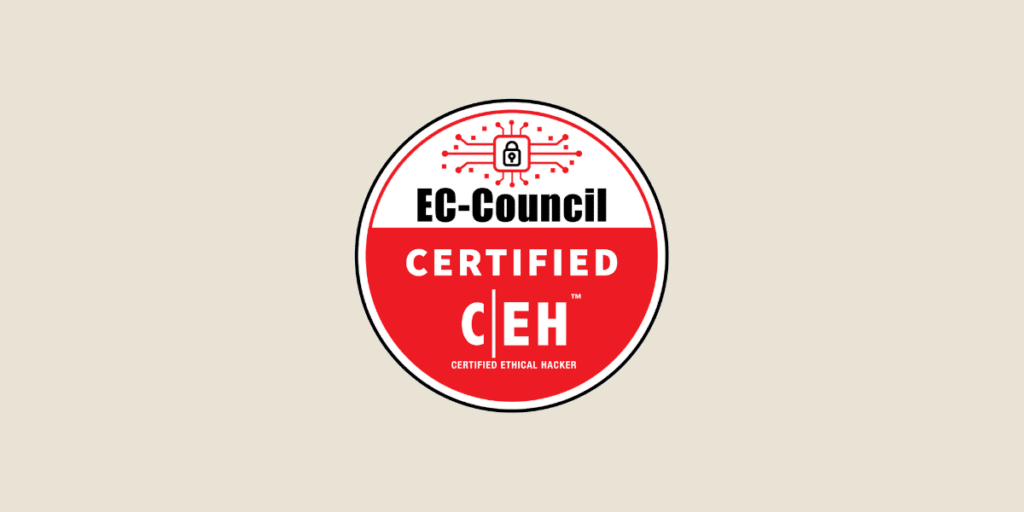Cybersecurity has become a major priority for businesses and governments. Each day, new cyber threats emerge, jeopardizing sensitive data and critical systems. Faced with this situation, it is crucial to have trained and certified professionals to protect digital infrastructures.
The CEH certification, issued by the EC-Council (an organization founded in 2001, quickly established as a leader in the field of IT security training), is recognized worldwide as a benchmark in ethical hacking and IT security. It trains professionals to think like hackers to better secure systems and networks. By obtaining this certification, professionals acquire advanced skills to identify and fix vulnerabilities before cybercriminals can exploit them.
What is an ethical hacker?
Definition and Role
An ethical hacker, also known as a “White Hat“, is a cybersecurity expert who uses their hacking skills legally and ethically to help organizations enhance their security, as opposed to malicious hackers, called “Black Hats“, who exploit vulnerabilities for personal gain or harmful motivations. These ethical hackers work with the authorization of system owners to identify and fix security flaws.
Their main role is to simulate real cyberattacks to test the robustness of IT systems and networks. They conduct thorough analyses to discover potential weaknesses that cybercriminals could exploit.
The table below presents some techniques used by ethical hackers:

- Simulate attacks on a computer system to identify vulnerabilities.
- Use automated tools and manual techniques to exploit potential flaws.

Vulnerability Analysis
- Simulate attacks on a computer system to identify vulnerabilities.
- Use automated tools and manual techniques to exploit potential flaws.

Social Engineering
- Use psychological manipulation techniques to obtain sensitive information.
- Test employee awareness and training on security.

Source Code Analysis
- Examine the application code to detect programming errors that could be exploited.
- Propose improvements to enhance code security.

Computer Forensics
- Analyze traces left by cyberattacks to understand how they were conducted.
- Help improve defenses based on attacker techniques.
Obtaining the CEH Certification
Achieving the Certified Ethical Hacker (CEH) certification requires rigorous preparation and an in-depth understanding of cybersecurity principles and techniques.
1. Prerequisites
A professional experience of at least two years in the field of information system security is recommended. However, a good understanding of networks, operating systems, and basic security concepts is essential.
2. Choosing the Training
EC-Council offers official training to prepare candidates for the CEH exam. These courses cover all exam topics and are available online, on-site, or in an intensive bootcamp format. Many other training options are also available, including online courses.
3. Exam Structure
It includes 125 multiple-choice questions and lasts four hours. The questions cover a wide range of topics, including hacking techniques, networks, operating systems, web applications, and security incident management.
Certification Update
Cybersecurity is an ever-evolving field, where threats and hacking techniques are constantly changing. It is therefore crucial that cybersecurity certifications, such as the CEH, also evolve to remain relevant and effective.

Evolution of Threats
Cybercriminals constantly develop new methods to breach security systems. Updates cover the latest techniques and strategies used by hackers.

Emerging Technologies
With the advent of new technologies such as artificial intelligence, IoT, and cloud computing, security professionals must be trained to protect these innovative systems.

Regulations
Cybersecurity laws and regulations also evolve. Updates to the CEH certification incorporate these changes to stay compliant with new legal and regulatory requirements.
In addition to these points, the EC-Council is committed to keeping the program updated to address current cybersecurity challenges, with refreshed content and new modules and tools available.
Conclusion
The CEH certification is essential for security professionals, enabling them to stay up-to-date with the latest cybersecurity techniques and threats, thus enhancing the protection of IT systems against cyberattacks.










